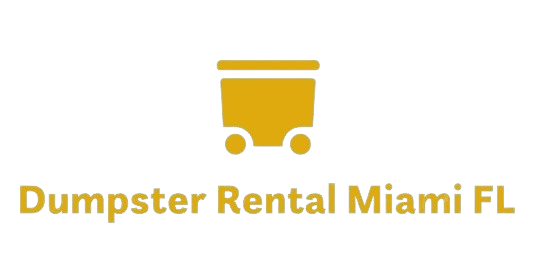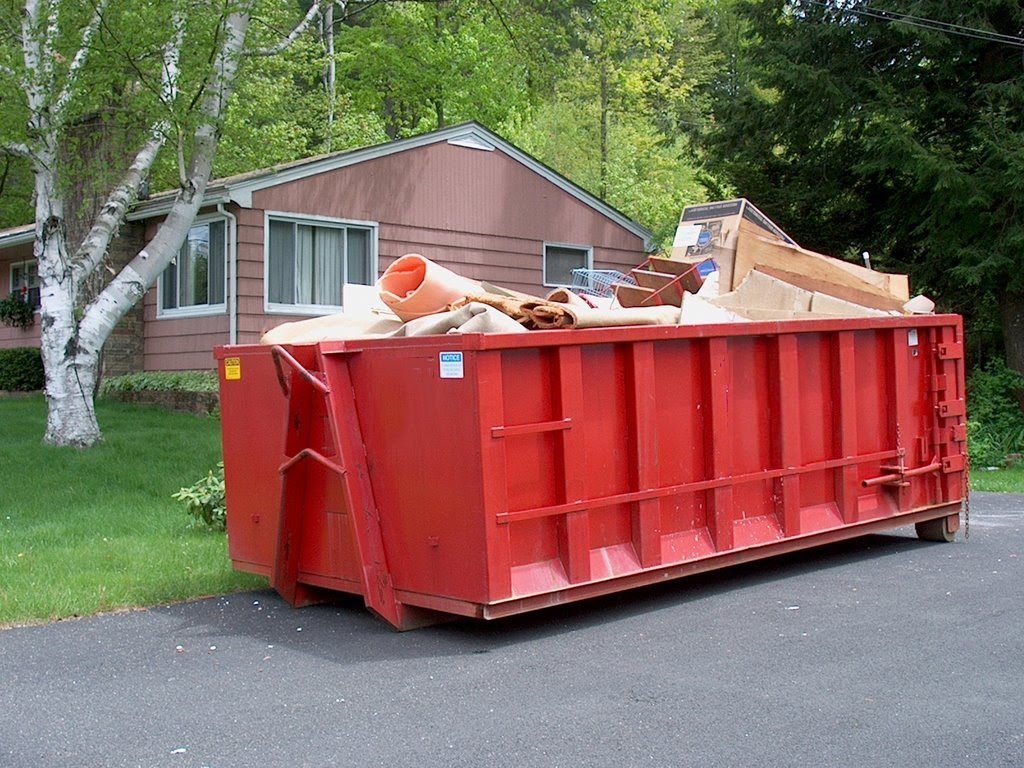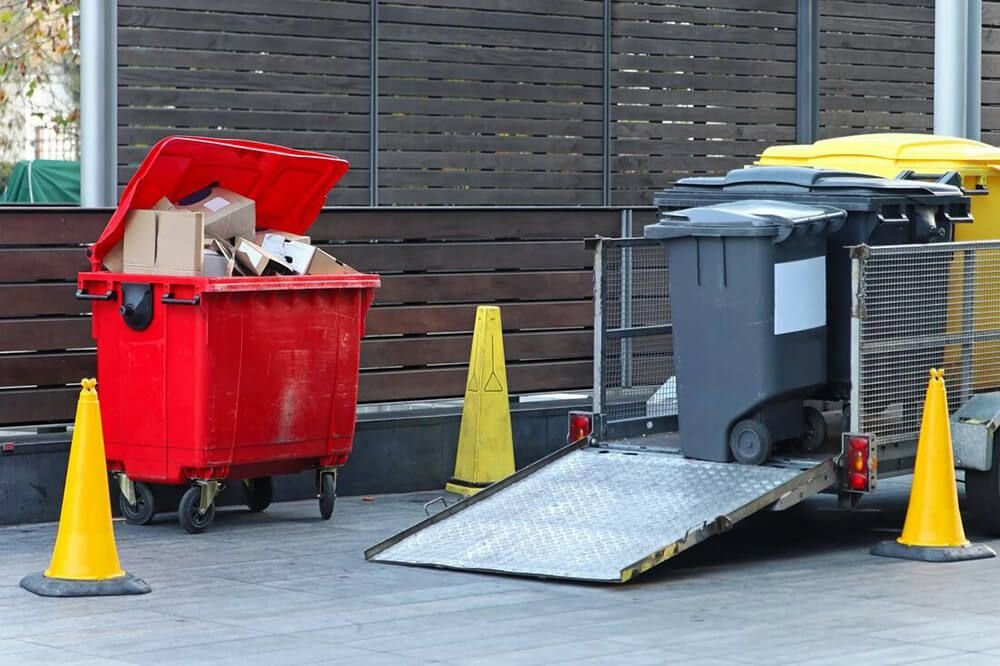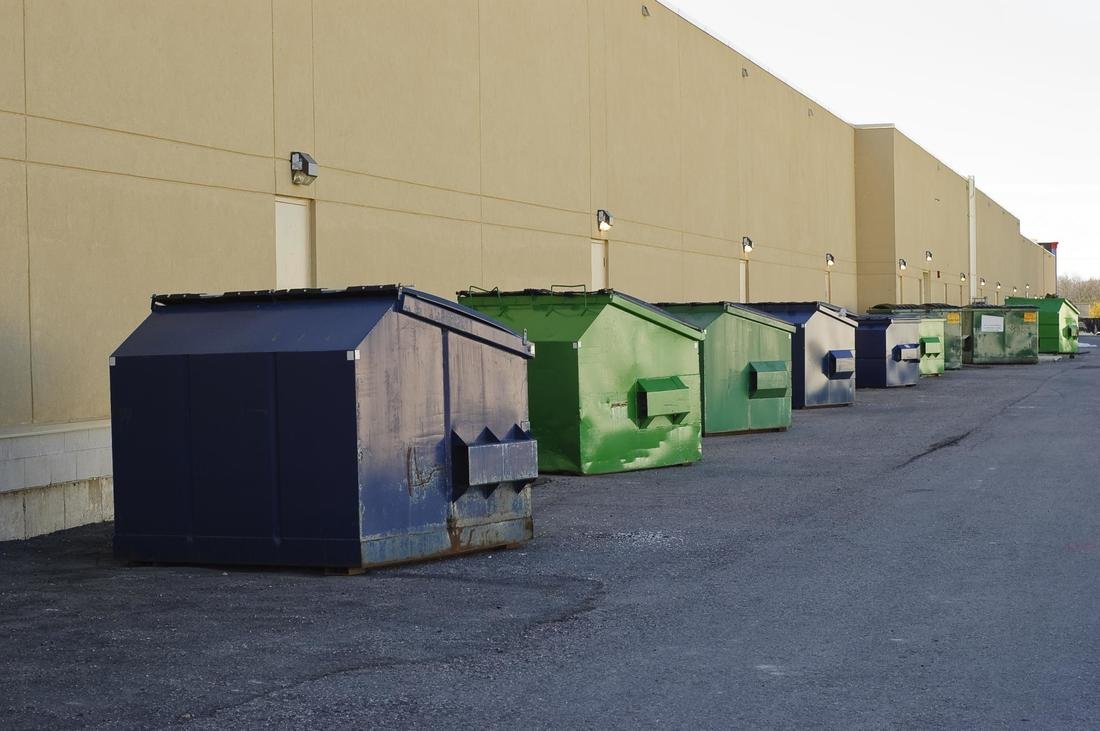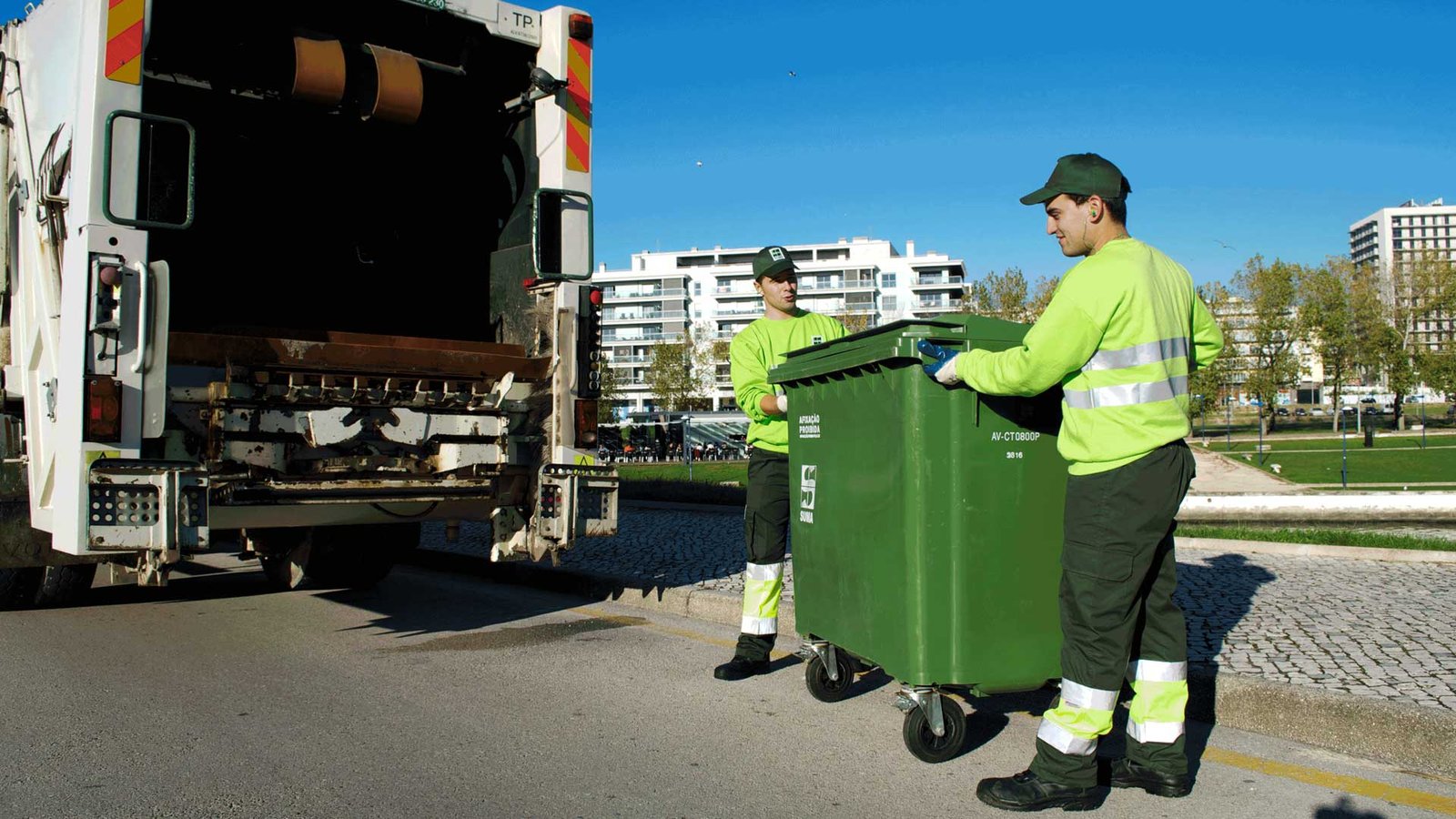Dumpster rental services play a crucial role in waste management, providing an efficient solution for disposing of various materials. However, it is important to be aware of the potential risks associated with hazardous materials and prohibited items that should not be placed in dumpsters. For instance, imagine a scenario where a construction company in Miami decides to rent a dumpster for their project. In the haste to clear out debris and waste, they unknowingly dispose of hazardous substances such as paint cans, solvents, or asbestos-containing materials into the rented dumpster. Such actions can have severe consequences not only for public health but also for legal compliance.
This article aims to shed light on the importance of understanding what constitutes hazardous materials and prohibited items when renting dumpsters in Miami, FL. By exploring specific examples and discussing relevant regulations, this piece will provide valuable insights into how individuals and businesses can ensure safe disposal practices while utilizing dumpster rental services. Additionally, it will highlight the potential environmental impacts and legal repercussions that arise from improper handling of hazardous waste within the context of dumpster rentals in Miami.
Types of hazardous materials for proper disposal in Miami dumpsters
Types of Hazardous Materials for Proper Disposal in Miami Dumpsters
Hazardous materials pose significant risks to human health and the environment if not disposed of properly. In Miami, FL, it is crucial to understand the types of hazardous waste that require special disposal methods when utilizing dumpsters. This section aims to provide an overview of these materials, emphasizing their potential harm and the importance of responsible disposal practices.
Case Study:
Consider a situation where a construction company recently completed a demolition project in downtown Miami. As they prepared to dispose of the debris, they discovered various hazardous materials mixed within, including asbestos-containing materials (ACMs) used as insulation decades ago. The presence of such dangerous substances necessitated careful handling and proper disposal procedures.
- Increased risk of contamination: Carelessly discarding hazardous materials can contaminate soil, water bodies, and even the air we breathe.
- Health hazards: Exposure to toxic substances may result in severe health issues ranging from respiratory problems to cancer.
- Environmental damage: Poorly managed hazardous waste can have detrimental effects on ecosystems and wildlife populations.
- Legal consequences: Violating regulations regarding hazardous material disposal can lead to hefty fines or criminal charges.
Furthermore, understanding specific examples of different types of hazardous materials further highlights their potential dangers. Take note of the table below showcasing three common categories along with their associated risks:
| Category | Examples | Risks |
|---|---|---|
| Chemicals | Paint thinners | Toxic fumes |
| Flammable liquids | Gasoline | Fire hazard |
| Heavy metals | Mercury | Soil contamination; neurological damage |
Guidelines for Hazardous Waste Disposal in Miami Dumpsters:
In summary, identifying and responsibly disposing hazardous materials are critical steps towards ensuring public safety and environmental protection. In the subsequent section, we will explore guidelines for hazardous waste disposal in Miami dumpsters, focusing on practical measures to prevent harm caused by these substances.
Guidelines for hazardous waste disposal in Miami dumpsters
Hazardous Materials and Prohibited Items: Dumpster Rental in Miami, FL
Types of hazardous materials for proper disposal in Miami dumpsters include a wide range of substances that pose potential risks to human health and the environment. One such example is asbestos, a fibrous mineral commonly found in older buildings. When disturbed or damaged, asbestos can release microscopic fibers into the air, which when inhaled, can cause serious diseases like lung cancer and mesothelioma.
To ensure safe dumpster rental practices in Miami, it is crucial to understand the guidelines for disposing of hazardous waste properly. Here are four key considerations:
-
Identification: It is essential to accurately identify hazardous materials before their disposal. This involves knowing what specific items fall under this category and being able to recognize them.
-
Segregation: Proper segregation of hazardous materials from other non-hazardous wastes is vital to prevent contamination and promote effective recycling or treatment processes.
-
Packaging: Hazardous materials must be packaged securely to minimize risks during transportation and handling. Suitable containers should be used, ensuring they are leak-proof and adequately labeled with relevant information about the contents.
-
Disposal Options: Understanding available disposal options for different types of hazardous materials helps ensure compliance with regulations while minimizing environmental impacts.
To provide further clarity on various types of hazardous materials and their associated risks, consider the following table:
| Type of Hazardous Material | Potential Risks |
|---|---|
| Chemicals | Toxicity |
| Flammable Liquids | Fire hazard |
| Radioactive Substances | Radiation |
| Infectious Waste | Health hazards |
By adhering to these guidelines and understanding the inherent risks posed by different categories of hazardous waste, responsible dumpster rental practices can help protect both public safety and environmental well-being.
Transitioning seamlessly into the subsequent section about prohibited items for disposal in Miami dumpsters, it is important to note that alongside hazardous materials, there are also items that should never be disposed of in dumpsters.
Prohibited items for disposal in Miami dumpsters
Hazardous Materials and Prohibited Items: Dumpster Rental in Miami, FL
Guidelines for hazardous waste disposal in Miami dumpsters have been established to ensure the safety of individuals and protect the environment. It is crucial to understand that proper handling and disposal of hazardous materials are necessary to prevent potential harm. To illustrate the importance of adhering to these guidelines, let us consider a hypothetical scenario where an individual disposes of chemical waste improperly.
Imagine a situation where someone rents a dumpster in Miami, FL, without being aware of the specific rules regarding hazardous waste disposal. They decide to discard several containers filled with chemicals used for cleaning purposes into the dumpster. Unfortunately, due to their lack of knowledge about proper disposal methods, these chemicals leak out from the containers and contaminate other non-hazardous items within the dumpster.
To emphasize the potential risks associated with improper disposal, here are some key points:
- Hazardous materials can pose serious health hazards if not handled correctly.
- Mixing different types of hazardous substances may result in chemical reactions that could cause explosions or fires.
- Improperly disposed hazardous waste can lead to contamination of soil, water sources, and air quality.
- Failure to comply with regulations on hazardous material disposal can result in legal consequences.
Consider the following table which highlights examples of common hazardous materials often found in residential settings:
| Type | Examples |
|---|---|
| Flammable | Gasoline, propane cylinders |
| Corrosive | Battery acid, drain cleaners |
| Toxic | Pesticides, mercury-containing thermometers |
| Reactive | Oxidizers such as chlorine bleach |
In conclusion, it is vital for individuals renting dumpsters in Miami, FL. , to familiarize themselves with prohibited items and guidelines related to hazardous waste disposal. By doing so responsibly and ensuring compliance with local regulations, we can safeguard our own health while also protecting our environment from potentially irreversible damage.
Legal implications of improper disposal of hazardous materials in Miami dumpsters
As we have discussed the prohibited items that should not be disposed of in Miami dumpsters, it is crucial to understand the legal ramifications associated with improper disposal. Let us explore some real-life examples and delve into the potential consequences individuals may face when hazardous materials are improperly discarded.
Case Study Example:
Imagine a scenario where an individual decides to dispose of old electronic equipment, including batteries and computer parts, by placing them in a rented dumpster in Miami. Unbeknownst to this person, these items contain harmful substances such as lead, mercury, or cadmium that can pose significant risks to human health and the environment if not handled properly.
Consequences of Improper Disposal:
To emphasize the importance of responsible waste management practices, let’s consider the potential outcomes resulting from the negligent disposal of hazardous materials like electronics or chemicals:
- Environmental Contamination: When hazardous materials end up in landfills or bodies of water due to improper disposal methods, they can contaminate soil, groundwater, and surface water sources.
- Health Hazards: Exposure to toxic substances through air pollution or contaminated water can lead to severe health problems for both humans and wildlife living near dumping sites.
- Legal Penalties: Improperly disposing prohibited items and hazardous materials is often subject to strict regulations enforced by local authorities. Violating these laws can result in fines, penalties, or even criminal charges.
- Damage to Reputation: Individuals or businesses found guilty of improper waste disposal may suffer reputational damage due to public backlash and negative media coverage.
| Effects of Improper Waste Disposal |
|---|
| Environmental Contamination |
In light of these potential consequences, it is crucial for individuals and businesses alike to prioritize responsible waste management practices. In the subsequent section about the importance of proper disposal of hazardous items in Miami dumpsters, we will delve deeper into why it is essential to handle such materials correctly and discuss viable alternatives.
Understanding the implications of improper waste disposal highlights the need for a comprehensive understanding of handling hazardous materials safely. Now let’s explore in detail why it is imperative to ensure proper disposal methods for hazardous items in Miami dumpsters.
Importance of proper disposal of hazardous items in Miami dumpsters
Hazardous Materials and Prohibited Items in Miami Dumpsters: A Call for Responsibility
Imagine a scenario where an individual decides to discard their old electronics in a dumpster located in Miami, Florida. Unbeknownst to them, these electronic devices contain hazardous materials such as lead, mercury, and cadmium. As a result of improper disposal, the toxic substances leak into the environment, polluting nearby soil and water sources. This example highlights the importance of understanding the risks associated with improperly disposing hazardous items in Miami dumpsters.
To fully comprehend the gravity of this issue, it is essential to consider the legal implications that arise from improper disposal of hazardous materials in Miami dumpsters. Violating waste management regulations can lead to substantial fines or even criminal charges. The City of Miami mandates proper handling and disposal methods for hazardous waste, ensuring public safety and environmental protection. Failure to adhere to these guidelines not only compromises personal well-being but also threatens the integrity of ecosystems within the vicinity.
Proper disposal techniques play a pivotal role in safeguarding both human health and our natural surroundings. Understanding what constitutes hazardous materials is crucial when determining which items are prohibited from being disposed of in Miami dumpsters. Some common examples include:
- Chemicals: Substances like pesticides, cleaning agents, solvents, and paint thinners.
- Electronic Waste: Devices such as computers, televisions, batteries, and fluorescent light bulbs.
- Medical Waste: Syringes, medications, contaminated gloves or gauze.
- Flammable Materials: Gasoline containers, propane tanks, fireworks.
The impact of improper disposal extends beyond potential legal consequences; it affects everyone’s quality of life. To illustrate this point further, let us examine a table highlighting some alarming statistics related to incorrect handling of hazardous materials:
| Environmental Impact | Health Risks | Financial Burden |
|---|---|---|
| Soil contamination | Respiratory issues | Cleanup costs |
| Water pollution | Skin irritations | Health expenses |
| Air pollution | Neurological disorders | Legal fines |
| Biodiversity loss | Cancer risks | Property devaluation |
These figures demonstrate the far-reaching consequences that can arise from improper disposal of hazardous items in Miami dumpsters. It is imperative for individuals and businesses alike to prioritize responsible waste management practices, not only for legal compliance but also to protect our environment and well-being.
As we have explored the potential dangers associated with improper disposal, it becomes evident that safe alternatives must be adopted when disposing of hazardous materials in Miami dumpsters. In the subsequent section, we will delve into effective methods that ensure the proper handling and environmentally-conscious disposal of these substances.
Safe alternatives for disposing of hazardous materials in Miami dumpsters
Case Study Example:
Imagine a construction site located in downtown Miami where workers are renovating an old building. During demolition work, they come across asbestos-containing materials (ACMs) without knowing their hazardous nature. Unaware of how to handle such substances properly, they dispose of them directly into a rented dumpster nearby.
Paragraph 1:
To ensure safety and avoid similar situations, here are some recommended alternatives for disposing of hazardous materials responsibly:
- Contacting specialized waste management companies or environmental agencies that offer services specifically designed for handling and disposing of hazardous substances.
- Utilizing designated drop-off locations for specific types of hazardous waste within the city.
- Participating in community clean-up events organized by local authorities that provide appropriate means for disposing harmful materials.
- Educating individuals about the dangers associated with improper disposal through awareness campaigns and informative resources.
The consequences of negligent disposal practices go beyond immediate harm; they have long-lasting effects on both human health and the environment. Consider the following impacts caused by improper handling and disposal methods:
- Increased risk of exposure to toxic substances leading to severe health issues like respiratory problems, skin irritations, and even cancer.
- Contamination of water bodies due to leaching and runoff from improperly discarded chemicals, endangering aquatic life.
- Soil pollution resulting from chemical absorption into the ground, which can affect agricultural productivity and threaten food security.
- Air pollution caused by incineration or release of hazardous waste, leading to respiratory ailments and deteriorating air quality.
Paragraph 2:
To exemplify the importance of proper disposal methods in mitigating risks associated with hazardous materials, we can compare two scenarios: one where individuals dispose of such items irresponsibly, and another where they follow recommended safety guidelines. The following table provides an overview:
| Irresponsible Disposal | Responsible Disposal | |
|---|---|---|
| Health Risks | Increased likelihood of injuries, illnesses, and long-term health effects due to exposure to hazardous substances. | Reduced risk of harm to both individuals handling the materials and those living in close proximity. |
| Environmental Impact | Polluted landfills, water bodies, and air resulting from improper disposal practices. | Preservation of ecosystems by preventing contamination and reducing pollution levels. |
| Legal Consequences | Possible fines or penalties for violating local regulations on hazardous waste management. | Compliance with legal requirements ensures a safer environment for all stakeholders involved. |
Paragraph 3:
By adopting safe alternatives for disposing of hazardous materials, communities can safeguard their well-being while preserving the environment for future generations. It is crucial that individuals recognize their responsibility in properly managing these substances rather than resorting to careless actions that pose significant risks.
Through strategic partnerships between citizens, institutions, and government authorities, Miami can establish effective systems that promote responsible waste disposal practices. By doing so, we contribute not only to our immediate surroundings but also inspire others to adopt similar measures across different regions.
(Note: Please convert this plain text response into markdown format when incorporating it into your document.)
